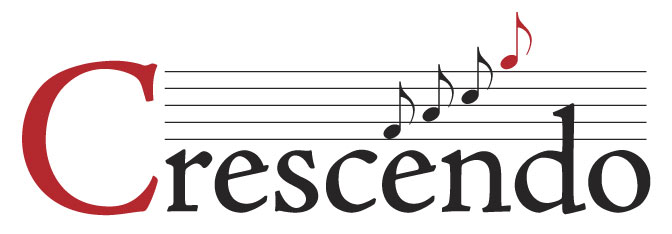

Bariolage Bariolage is a French term which means an "odd mixture of colors," and directs the string player to achieve a contrast in tone colors by playing on different strings.It is a monophonic composition often in the following pattern: A b b a A. Ballata A ballata is a 14th century Italian secular song.For example, an augmented fourth is a half-step larger than the interval of a perfect fourth. Augmented Augmented means raised, and when the term augmented is combined with a specific interval between notes, it means to raise the interval by a half-step.Au talon Talon is French for heel, and the term au talon, “at the heel,” means play the music with the bow hair at the heel or bottom part of the bow, closest to the hand (other terms for playing music using the bottom part of the bow include "at the frog", heel or nut).Traditional tonal structures are intentionally ignored or abandoned in this contemporary form of music. Atonality Music with an absence of tonality.assez vif means "rather lively" in French (vif means lively), and assez vite means "rather fast" (vite means fast). It modifies other terms when added to them, e.g. Assez Assez means "enough" or "rather" in French.These markings are often used in combination with each other, and mean many different things to different musicians. which means shorten the note, a line _ or slur which means play the note smoothly, and an accent > which means add a forceful emphasis. For string players, this involves both the right and left hand. Articulation Articulation describes the manner of providing definition and shape to individual notes or phrases.Aria An elaborate vocal solo with instrumental accompaniment, used in genres such as an opera, oratorio or cantata.After a pizzicato (plucked) section of music, arco is often used to indicate the next passage of music should be played with the bow. Appassionato Play passionately or with intense emotion and feeling.Animando Play with increasing animation, liveliness, and expression.Andantino A slightly slower tempo than andante (andante is a moderately slow tempo).Allegro A quick, lively and fast tempo (not quite as fast as presto).

Often considered to be slower than allegro, but faster than andante. Allegretto A lively and moderately fast tempo.For example, the performers may throw dice to determine compositional elements such as rhythmic or pitch choices. Chance or indeterminancy may affect compositional elements, the performance, or both. Aleatory Comes from the Latin term alea, meaning "a game of dice." Aleatory music is also called chance music.In art music, air is the English word for aria, and both share the same meaning of a lyrical piece for solo voice, with or without instrumental accompaniment. In fiddle music, airs are often played slowly with rubato, and are not dance tunes. Agitato is a direction to play in an agitated manner. Slow movements of a piece are sometimes titled Adagio. Adagio A slow, leisurely tempo, often considered to be slower than andante, but not quite as slow as largo.Accidentals apply to the note immediately following the symbol, and remain in effect throughout the measure in which it appears. Accidentals A sign indicating a momentary departure from the key signature by using a flat, sharp or natural to temporarily alter the pitch of a note by a half step.



 0 kommentar(er)
0 kommentar(er)
